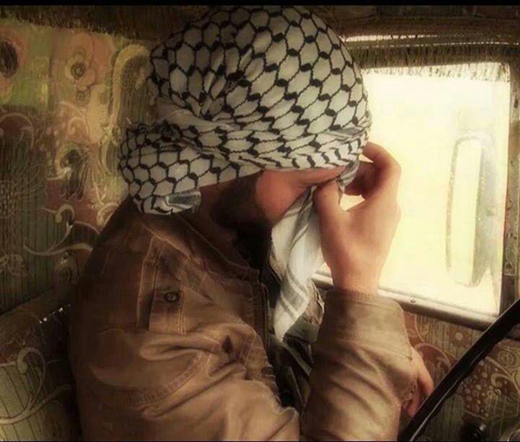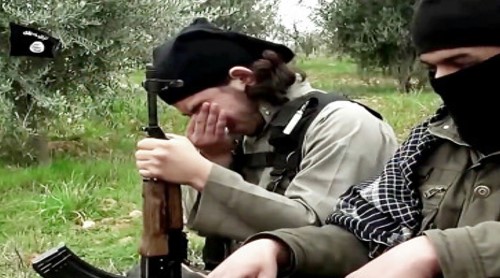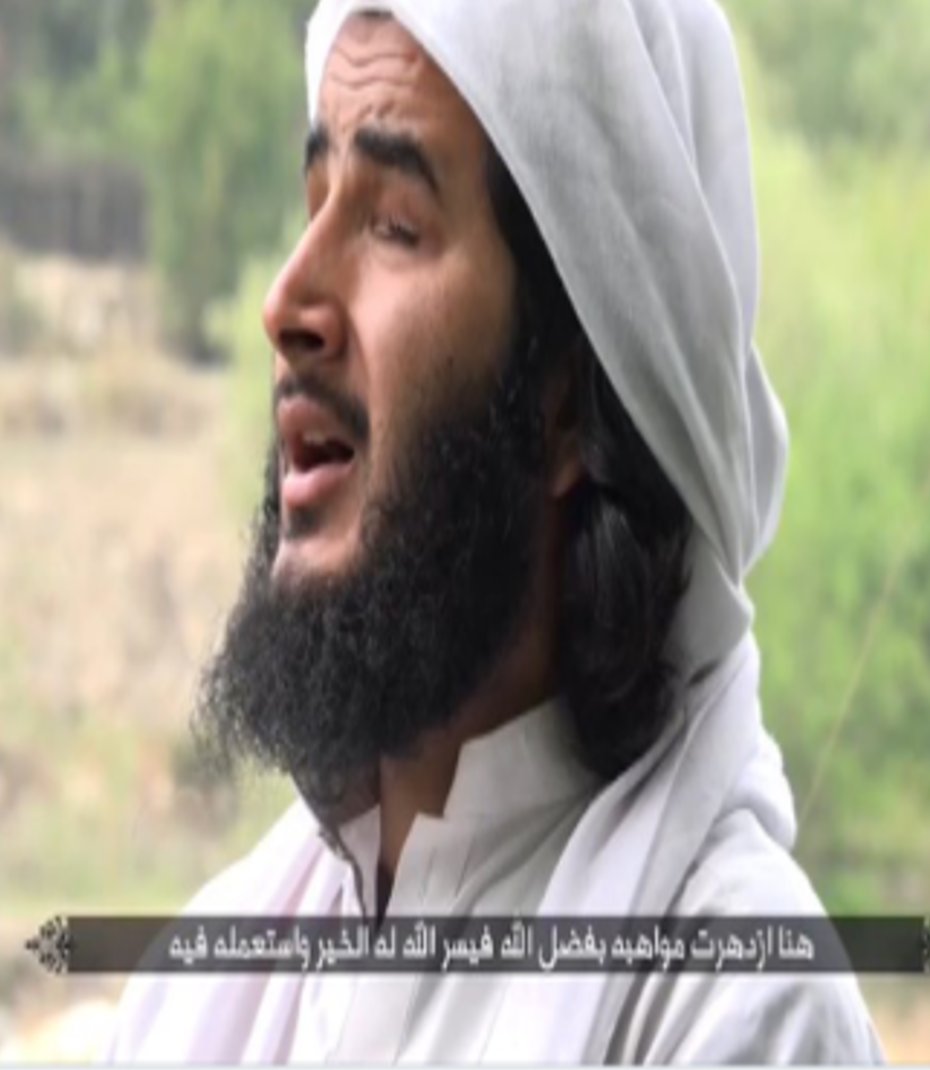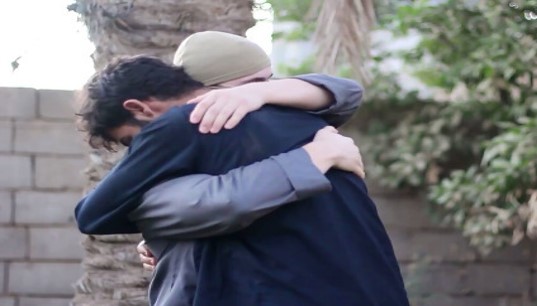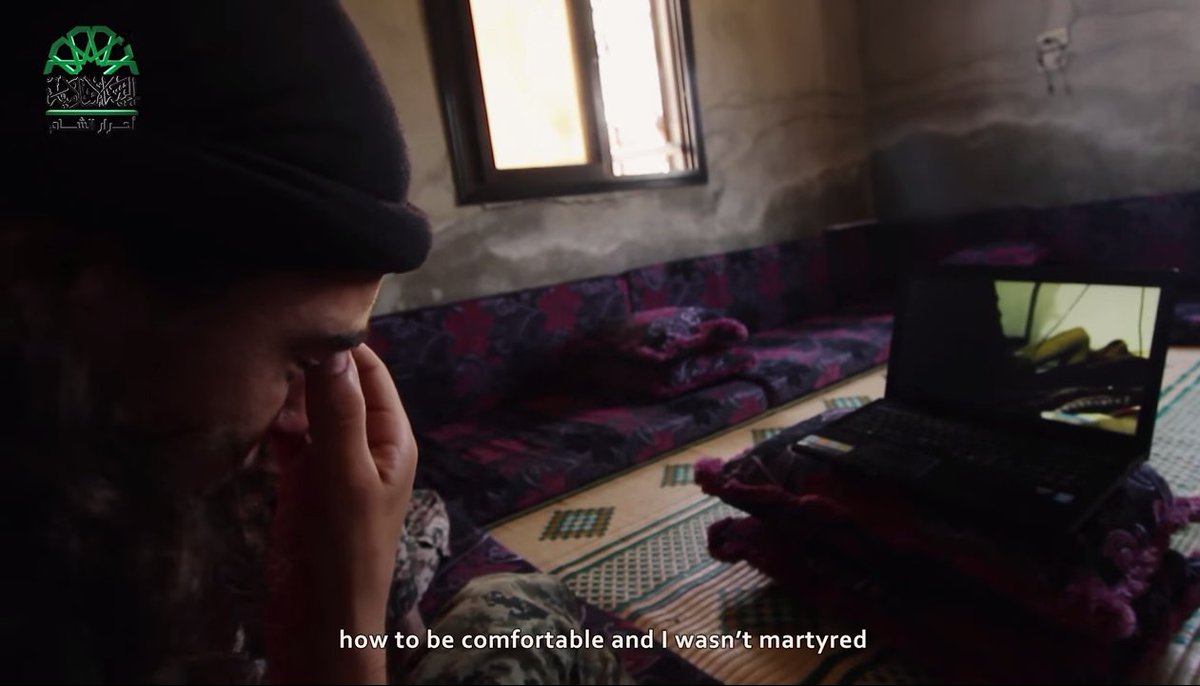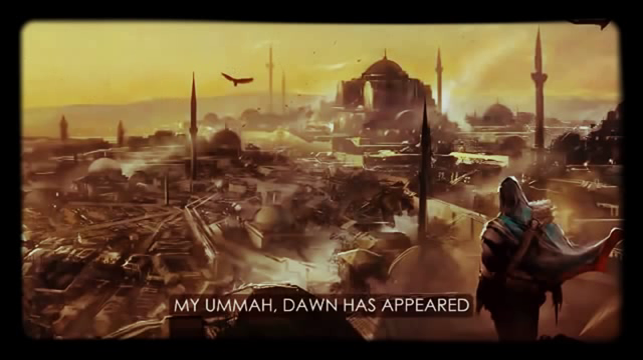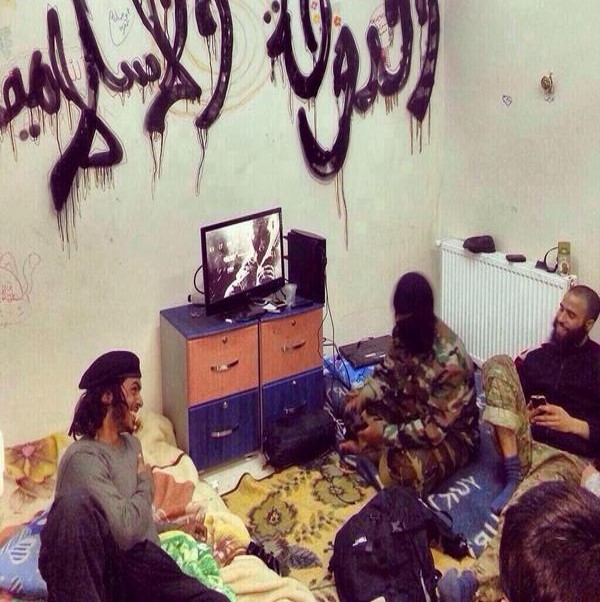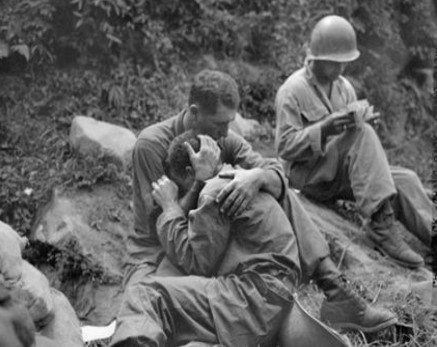Why do jihadis weep so much, and what does this tell us? I have a new article (ungated!) in the Journal of Islamic Studies that looks in depth at these questions https://academic.oup.com/jis/article/31/3/358/5905072
https://academic.oup.com/jis/artic... href="https://twitter.com/OUPReligion">@OUPReligion #openaccess 1/x
Of course, it& #39;s not surprising that jihadis should be crying, as devotional weeping is a common Islamic practice. The taboo on male weeping is a post-18C European thing. But I wanted to know whether people weep more or differently in these clandestine groups 2/x
You might ask how we can even know what they& #39;re doing behind closed doors. But there are lots of sources; bear in mind that these guys have been filming themselves for 40 years. You also have defector autobiographies offering non-propagandistic thick description 3/x
The sources suggest jihadis are strikingly teary-eyed even in an Islamic context. They weep often, ostentatiously, and together. Crying is encouraged, applauded, and even showcased in propaganda. They& #39;ve essentially semi-ritualized it 4/x
We see them cry in six main types of situations: in prayer, during sermons, when listening to hymns, pre- and post-combat, on losing comrades, and upon seeing civilian Muslim suffering 5/x
Clearly these are ideologically sanctioned behaviours. You don& #39;t see them cry because they hurt their leg or miss their mothers. The crying patterns reflect their view of what an ideal mujahid should be like 6/x
Here& #39;s what& #39;s interesting: the liberal weeping places jihadis closer to sufis and Shiites - enemies of theirs - than to salafis. Weeping is sanctioned in all traditions, but some, like Sufis and Shiites, do it more. Meanwhile quietist salafis frown on ostentatious weeping 7/x
This adds to mounting evidence that the sufi-salafi distinction is not nearly as sharp as it& #39;s often made out to be, and that the view of modern jihadis as extreme salafis is reductive. David Cook, Meir Hatina, others have made the same observation 8/x
But why have they cultivated weeping and not toned it down? I don& #39;t know. It could be that it offers operational benefits for clandestine groups, for example by helping reduce stress, improve group cohesion, and screen personnel for commitment 9/x
It could also be a bid for authenticity and legitimacy, since the image of the weeping mujahid goes back centuries, and jihadis are famously obsessed with the emulation of heroes of early Islamic history 10/x

 Read on Twitter
Read on Twitter